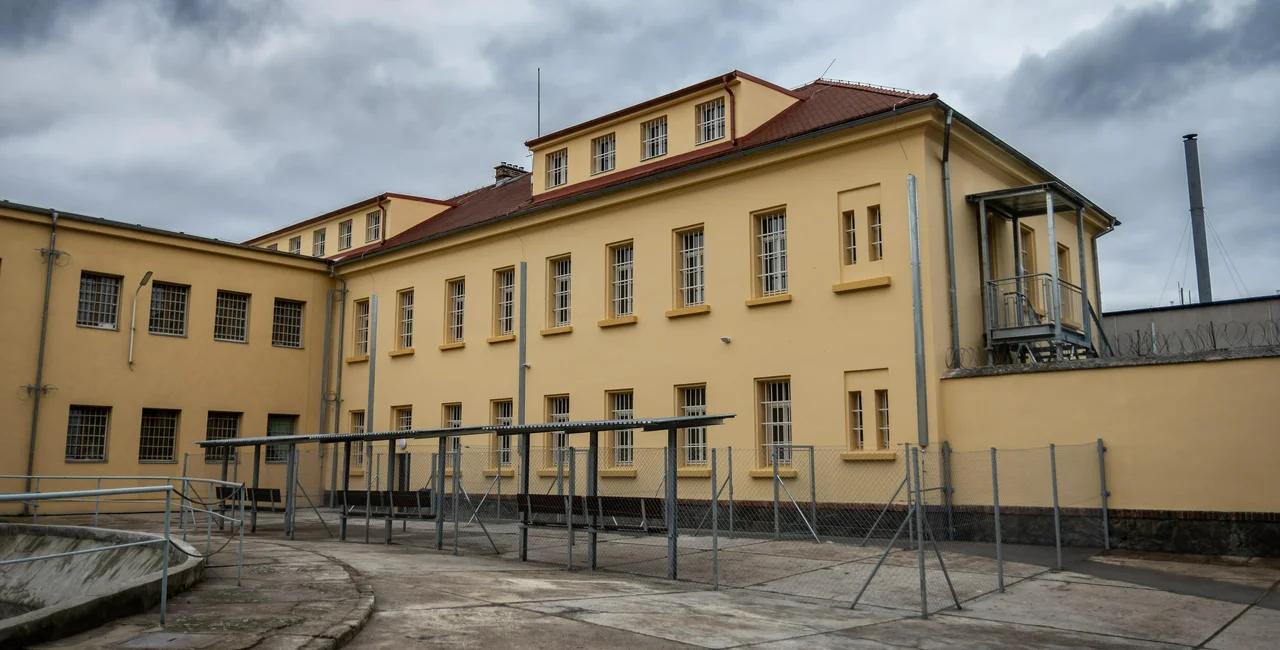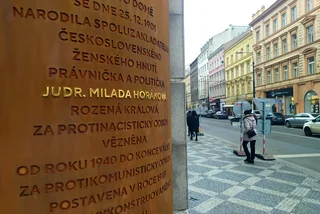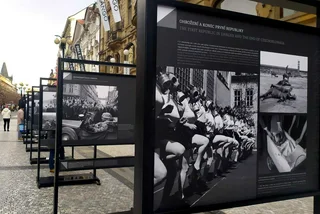Scientists have uncovered a burial site at Prague’s Pankrác Prison containing cremated remains of over 80 political prisoners who died between 1948 and 1965. Bone fragments found in the soil came from executed opponents of the regime from various prisons in then-Czechoslovakia, people who died in the Pankrác prison hospital, and soldiers who had participated in the anti-communist resistance.
"In the 1950s, something took place here that today's people cannot imagine at all, regardless of their ideology. And we were very keen for it to come out and to show how cruel and rude people can be to each other," Prison Service director Simon Michailidis said at a press conference, according to ČTK.
"I thought until recently that this was a matter of history, but unfortunately today we can see that such things still happen in other countries," Michailidis added.
Prison Service historian Aleš Kýr said the remains of burnt bones were found in the ground at execution sites in use between 1947 and 1954. The gallows were removed from the two execution sites after that date, which went unused until 1992 when a commemorative place was installed, Kýr said.
Archaeologists found remnants of organic material in the soil that proved to be fragments of burnt bones after a soil survey was carried out there last October.
"We can assume that these are the remains of people whose urns were emptied here," Jan Mařík, the director of the Institute of Archeology of the Czech Academy of Sciences, said.
The researchers do not have an exact list of the victims buried at the site, and they are checking historical records to determine whose remains the bones might be. The researchers are contacting potential relatives to inform them where the ashes of their missing family members most probably lie.
The aim of the research project was to discover what happened to the remains of political prisoners who were not buried at cemeteries in Prague or given over to family members.
Researchers found out that in 1961, the Interior Ministry ordered that the remains from some urns be mixed with the soil. Other urns, though, were moved to a cemetery in Motol in 1965. Other remains were placed in a cemetery in Ďáblice.
Alena Šimánková, from the Czech National Archives, said that the remains of journalist Záviš Kalandra, who was sentenced to death along with democratic politician Milada Horáková and executed in June 1950, have never been found. His urn was most likely brought to Pankrác. But it is not possible to link the bone fragments to specific people.
A commemoration of all the people whose remains were buried in the ground should be organized in the autumn.












 Reading time: 2 minutes
Reading time: 2 minutes 


























